Latinx Theatre Commons
Updating the US Narrative
Editor’s note: HowlRound hosted a small group of Latina/o Theatre Artists in May of 2012 for a meeting to discuss the state of Latino/a theatre artists in the US. We didn’t have a specific agenda but what follows came out of that meeting. Many thanks to Anne García-Romero for taking that conversation and turning it into this essay for HowlRound. And many thanks to Kristoffer Diaz, Lisa Portes, Tlaloc Rivas, Antonio Sonera, Enrique Urueta, Jose Luis Valenzuela, and Karen Zacarías for such an inspiring exchange of ideas.
In May 2012, Karen Zacarías, a playwright in residence at Arena Stage asked HowlRound to host an intimate conversation about the state of theatre for US Latina/o artists. A group of us met in DC. It was a small gathering of theatre artists from across the country representing diverse voices, but in no way intended to be representative of the breadth of the Latino/a theatre scene. In the twenty-four hour stretch of the gathering, we talked about community, history, and action. We dreamed up a plan.
Celebrating Contemporary Latina/o Theatre
Theatre can function as a reflection of our contemporary national narrative. The character journeys on a stage often help us better understand the complexities of our society. US culture in the twenty-first century continues to move from a mono-cultural to a multi-cultural experience. However, US theatre currently does not always reflect this reality and therefore can perpetuate an outdated narrative. Contemporary Latina/o theatre updates the US narrative through presenting diverse cultural worlds that allow theatre audiences to more fully understand the US experience in the twenty-first century. In 2012, Latina/o is a heterogeneous term that includes the diversity of all Spanish-speaking and indigenous cultures existing in the US from Mexico, the Caribbean, Spain, and Central and Latin America, in addition to the complexities which arise from the intersections of these cultures with non-Latina/o cultures. [1] This definition highlights the globalization of the US Latina/o community and mirrors the fact that life in the US is now an intercultural reality. According to the 2010 US census, 308.7 million people resided in the United States, of which 50.5 million (or 16 percent) were Latina/o. The Latina/o population hails from over twenty-two Latina/o cultural groups and was the fastest growing population from 2000 to 2010. [2] US theatre production historically has only reflected a fraction of this diversity. Twenty-first century Latina/o theatre artists are creating works that amply reflect this complexity. By embracing the current landscape of Latina/o theatre, US theatres not only present a view of contemporary Latina/o culture, they also provide their audiences with ways in which to more fully understand our multicultural US experience.
US culture in the twenty-first century continues to move from a mono-cultural to a multi-cultural experience. However, US theatre currently does not always reflect this reality and therefore can perpetuate an outdated narrative.
Creating a Commons
A Latinx Theatre Commons acknowledges the gifts that Latina/o theatre artists can share with each other by connecting Latina/o theatre artists from across the US to create a platform and promote the latest developments in the field of Latina/o theatre. From artists who began their professional careers in the 1970s to those who recently completed their MFA training, a commons facilitates a vibrant, intergenerational conversation that reflects contemporary US Latina/o theatre. Building upon the foundation of the past and highlighting the realities of the present, a Latinx Theatre Commons creates new models of engagement and presentation of Latina/o theatre that will not only illuminate the wide expanse of the field but will allow audiences to update the US narrative by experiencing multi-cultural worlds on stage that reflect an ever-diversifying national reality.
Building upon the foundation of the past and highlighting the realities of the present, a Latinx Theatre Commons creates new models of engagement and presentation of Latina/o theatre that will not only illuminate the wide expanse of the field but will allow audiences to update the US narrative by experiencing multi-cultural worlds on stage that reflect an ever-diversifying national reality.
Highlighting Our History
From the success of Luis Valdez' 1978 production of Zoot Suit in Los Angeles to Maria Irene Fornes' Obie-Award winning New York City production of Fefu and Her Friends in 1977, US Latina/o theatre continues to grow and thrive from coast to coast. Through the support of organizations such as the Ford Foundation and the Lila Wallace–Reader’s Digest Fund, several US regional theatres have provided platforms for the continued development of Latina/o theatre artists. The INTAR Playwrights Workshop in New York City, South Coast Repertory's Hispanic Playwrights Project in Costa Mesa, California, and The Mark Taper Forum's Latino Theatre Initiative in Los Angeles became centers of training, collaboration, and conversation from 1978 to 2005. These programs helped launch the careers of a generation of Latina/o theatre artists including Pulitzer prize winners Nilo Cruz and Quiara Alegría Hudes, Academy-Award nominee José Rivera, Obie award winners Caridad Svich and Kristoffer Diaz, and MacArthur Genius grant winner Luis Alfaro. INTAR, founded in 1972 by Max Ferrá, is one of the longest-running companies producing Latina/o theatre in the United States. [3] Maria Irene Fornes created the INTAR Hispanic Playwrights-in-Residence Laboratory (1978-1991) and trained some of the most widely produced Latina/o playwrights in the US including Cruz, Svich, Alfaro, Cherrie Moraga, Migdalia Cruz and Octavio Solis. Svich states:
Fornes, leading by example, did not require that the playwrights in the Lab address any ethnically specific subject matter or theme. Through daily visualization exercises, the writers were asked to discover the work within them, to create the forms that suited their visions, and under Fornes’ rigorous, watchful eye, to speak the truth about their worlds. [4]
Under the current leadership of Lou Moreno, INTAR continues to produce new work by Latina/o playwrights. Hispanic Playwrights Project (HPP), 1985-2004, created by José Cruz Gonzalez and later directed by Juliette Carrillo, featured a yearly summer festival of new works at South Coast Repertory bringing together new plays written by Latina/o playwrights. For many playwrights, HPP provided a first professional theatre development opportunity. The annual gathering launched the careers of many Latina/o theatre artists including Octavio Solis, Rogelio Martinez, Karen Zacarías, Kristoffer Diaz, Quiara Alegría Hudes, and Anne García-Romero. The Latino Theatre Initiative (LTI), 1992-2005, at the Mark Taper Forum, was designed to diversify the Taper’s audience base by offering theatrical programming relevant to the Latina/o community while also providing access to emerging Latina/o artists who reflected the diversity of the city of Los Angeles. [5] Founded by José Luis Valenzuela and later codirected by Luis Alfaro and Diane Rodriguez, LTI developed new works through in-house readings, festivals and yearly writers' retreats.
Building upon Our Present Theatre Companies
At present, over forty US theatre companies are dedicated to the production of plays by Latinas/os (see Appendix A). The following brief list includes several of the most prominent Latina/o theatre companies in the US:
California: El Teatro Campesino, and Latino Theater Company at LATC, Teatro Vision
Oregon: Miracle Theatre Group
Illinois: Teatro Luna Teatro Vista
New York: INTAR, and Pregones
New Play Development
Since the demise of HPP and LTI, Latina/o playwrights continue to develop their work at US theatres, festivals, and conferences. No current program exists that brings together a company of Latina/o theatre artists once a year to explore the creation and development of new plays. However, the following are among the organizations that have been developing the work of Latina/o playwrights. Eugene O'Neill National Playwrights Conference: Nilo Cruz, Anne García-Romero, Quiara Alegría Hudes, and Karen Zacarías. Lark Play Development Center: Migdalia Cruz ,Rogelio Martinez, José Rivera, Adriana Sevahn-Nichols, and Caridad Svich. Denver Center New Play Summit: Cusi Cram, Octavio Solis, and Caridad Svich. Sundance Theatre Lab: Quiara Alegría Hudes, and Tanya Saracho.
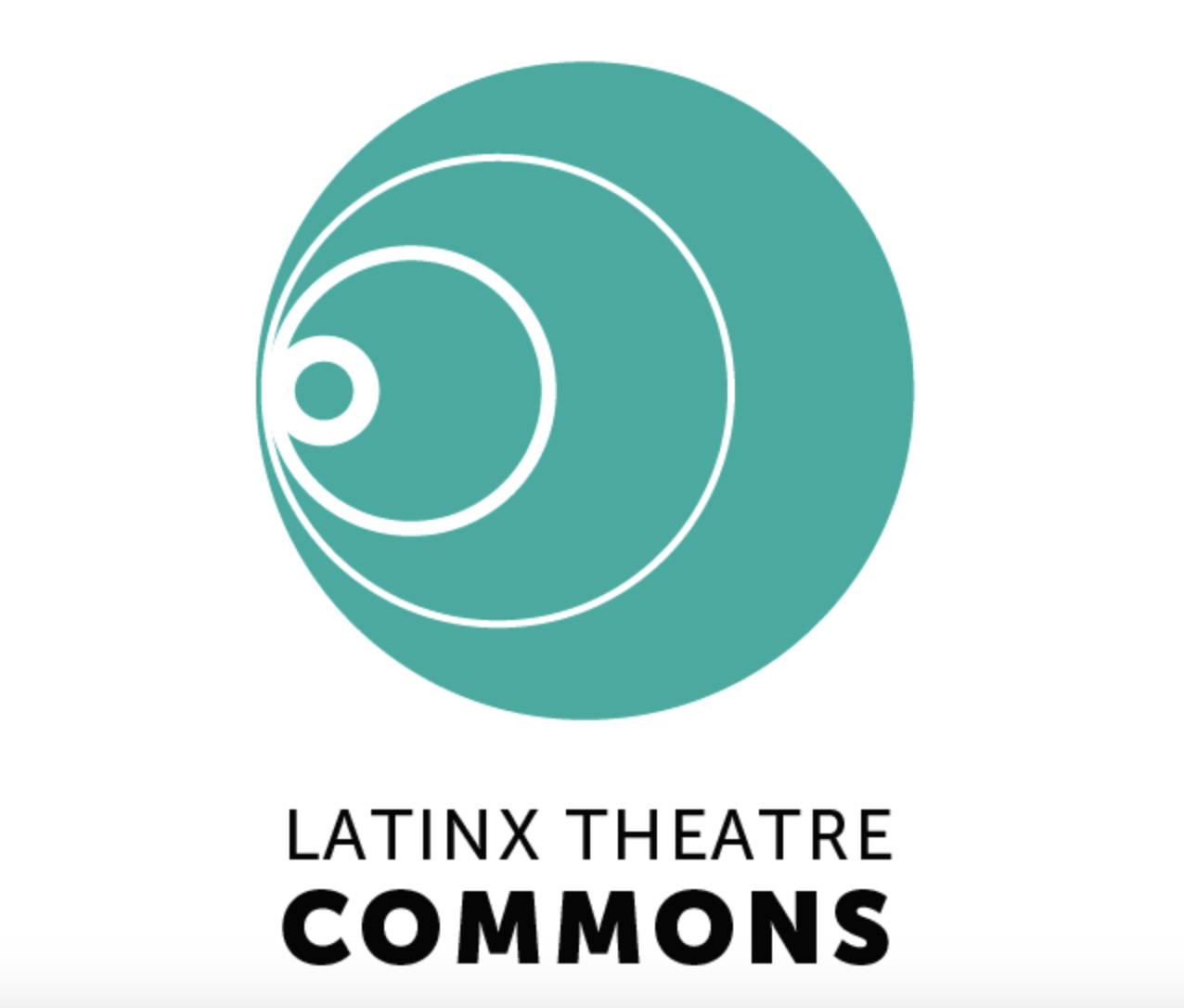
An Action Plan: Generating New Models
In our dream for a Latinx Theatre Commons, we build upon the foundation of the past and the momentum of the present to create four initiatives that will continue to advance the field of US Latina/o theatre.
- The Los Angeles Theatre Center, under the direction of José Luis Valenzuela, will produce a festival of ten Latina/o plays over the course of the 2014-15 season. This festival seeks to present ten diverse plays that will mirror the complexity of the US Latina/o community.
- Latinx Theatre Commons will pilot a biannual conference of new Latina/o work hosted by the Theatre School at DePaul University in Chicago. The Festival will honor and be inspired by previous programs such as the Hispanic Playwrights Project, but be reconceived for the twenty-first century to allow for live and online participation and new methods of collaboration through workshops and focus groups on specific theatrical disciplines.
- Latinx Theatre Commons will launch an online platform, Café Onda (Wave Café). This platform will be created as an online community and conversation about the current state of the Latina/o theatre in the twenty-first century. Café Onda will contain articles, blogs, and live streaming of theatre events and will be linked to HowlRound.
- Latinx Theatre Commons will broaden the conversation by working with an expanded national cohort of Latina/o theatre artists to convene in 2013 and solidify our efforts in implementing these plans that will generate a new national narrative for US theatre. Members of the Steering Committee who will be involved in planning this meeting include as of this publication:
- Christopher Acebo (Designer; Associate Artistic Director, Oregon Shakespeare Festival, Ashland, OR)
- Luis Alfaro (Playwright, Assistant Professor, USC, Los Angeles, CA)
- Juliette Carrillo (Stage Director; Former Artistic Associate, South Coast Repertory; Ensemble Member, Cornerstone Theater Company, Los Angeles, CA)
- Sandra Delgado (Actor; Company Member, Collaboraction Theater Company; Company Member, Teatro Vista, Chicago, IL)
- Kristoffer Diaz (Playwright, New York, NY)
- Michael John Garcés (Playwright; Artistic Director, Cornerstone Theater Company,Los Angeles, CA)
- Ricky J. Martinez (Artistic Director, The New Theatre, Coral Gables, FL)
- Anne García-Romero (Playwright; Assistant Professor of Theater, University of Notre Dame, South Bend, IN)
- Lisa Portes (Stage Director; Head of MFA in Directing, DePaul University, Chicago, IL)
- Tlaloc Rivas (Stage Director; Assistant Professor of Theater, The University of Iowa, Iowa City, IA)
- Anthony Rodriguez (Artistic Director, Aurora Theater Company, Atlanta GA)
- Diane Rodriguez (Playwright; Associate Artistic Director, Center Theater Group, Los Angeles, CA)
- Olga Sanchez (Artistic Director, Miracle Mainstage, Miracle Theater Group, Portland, OR)
- Tanya Saracho (Playwright, Chicago, IL/Los Angeles, CA)
- Octavio Solis (Playwright, San Francisco, CA)
- Antonio Sonera (Stage Director; Producing Artistic Director, Badass Theatre Company, Portland, OR)
- Enrique Urueta (Playwright, Minneapolis, MN)
- Kinan Valdez (Stage Director; Producing Artistic Director, El Teatro Campesino, San Juan Bautista, CA)
- Clyde Valentin (Executive Director, Hip-Hop Theater Festival, New York, NY)
- José Luis Valenzuela (Stage Director; Artistic Director, Los Angeles Theater Center, Professor of Theater, University of California, Los Angeles, Los Angeles, CA)
- Patricia Ybarra (Theatre Studies Scholar; Assistant Professor of Theatre, Brown University, Providence, RI)
- Karen Zacarías (Playwright; Resident Playwright–Arena Stage, Washington, DC)
These projects will provide a multifaceted view of contemporary Latina/o theatre. Through exploring, developing and advocating for new Latina/o plays, all four initiatives generate necessary conversations about the diverse make-up of US society. We respectfully share this plan in the hopes that a Latinx Theatre Commons will advance the state of Latina/o theatre while also allowing audiences to update the US narrative at the start of the twenty-first century. Onward, Latinx Theatre Commons!
***
Appendix A
This list was compiled by the American Theater in Higher Education Latino Focus Group. ARIZONA: BORDERLANDS THEATER, and TEATRO BRAVO; CALIFORNIA: AMERICAN LATINO THEATRE, BREATH OF FIRE LATINA THEATER ENSEMBLE, CASA 0101 CULTURE CLASH, EAST LA CLASSIC THEATRE, EAST LA REP, LATINO THEATRE COMPANY, EL TEATRO CAMPESINO, and TEATRO VISIÓN; COLORADO: SU TEATRO; FLORIDA: TEATRO AVANTE, TEATRO 8, TEATRO PROMETEO, and TEATRO TRAIL; ILLINOIS: TEATRO LUNA,TEATRO VISTA, and TEATRO AGUIJON; MINNESOTA: TEATRO DEL PUEBLO; NEW MEXICO: CAMINO REAL PRODUCTIONS, TEATRO NUEVO MÉXICO, and TEATRO PARAGUAS; NEW YORK: AY OMBE THEATRE, DANISARTE, INTAR, LATINO FLAVORED, INC., NUYORICAN POETS CAFÉ, PUERTO RICAN TRAVELING THEATRE, REPERTORIO ESPAÑOL, TEATRO CIRCULO, TEATRO IATI, TEATRO LATEA, TEATRO PREGONES, TEATRO SEA, TEATROSTAGEFEST, THALIA THEATRE, UNIVERSES; OREGON: Miracle Theatre Group; TEXAS: ARTES DE LA ROSA, AUSTIN LATINO THEATRE ALLIANCE, CARA MIA THEATRE CO., LATINO COMEDY PROJECT, PROYECTO TEATRO, THE ROYAL MEXICAN PLAYERS, TEATRO DALLAS, TEATRO VIVO; WASHINGTON, DC: TEATRO HISPANO GALA
Notes:
[1] García-Romero, Anne. "Latin@: Shifting Toward A Twenty- First Century Definition" 2012: Backpages, Contemporary Theatre Review, 22:2, 285-298.
[2] Ennis, Sharon R., Ríos-Vargas, Merarys and Albert, Nora G. The Hispanic Population 2010. Washington DC: United States Census Bureau, 2011.
[3] Rodríguez, Chantal. Bringing Teatro to the Taper: Center Theatre Group’s Latino Theatre Initiative, 1992–2005. Los Angeles: UCLA Chicano Theatre Archives. 2011
[4] For more on Fornes' workshop, please see Svich, Caridad and Delgado, Maria, eds. Conducting a life: reflections on the theatre of Maria Irene Fornes. Lyme, NH: Smith and Kraus, 1999. xxi. and Svich, Caridad ed. “The Legacy of Maria Irene Fornes: A Collection of Impressions and Exercises,” PAJ Journal, Vol. 31, No. 3, September 2009.
[5] Please refer to Dr. Chantal Rodríguez's essay, Bringing Teatro to the Taper: Center Theatre Group’s Latino Theatre Initiative, 1992–2005 for an in-depth exploration of LTI.

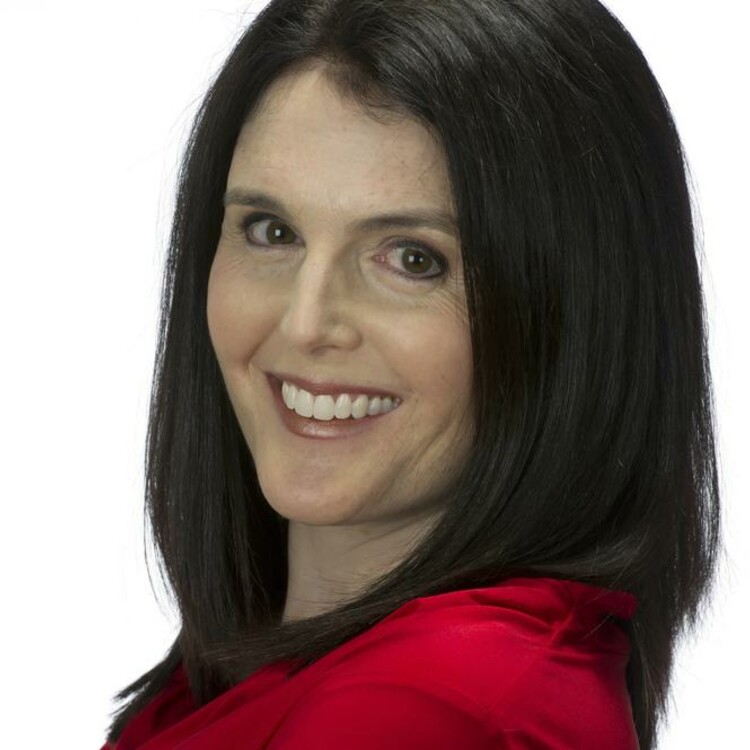
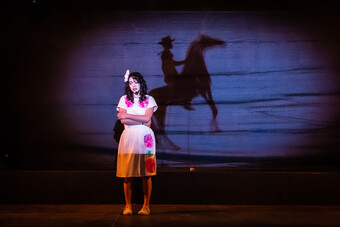


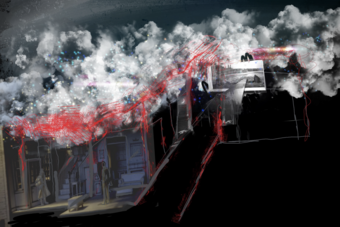


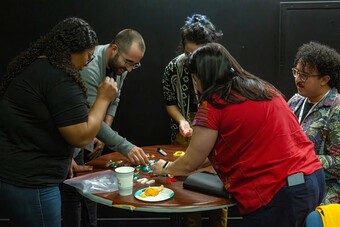

Comments
The article is just the start of the conversation—we want to know what you think about this subject, too! HowlRound is a space for knowledge-sharing, and we welcome spirited, thoughtful, and on-topic dialogue. Find our full comments policy here
Just stumbled upon this article, and wow! As a Latino playwright, I'm really excited to hear this! Will watch this space anxiously for more updates in the future.
i know you are continuing to compile info. wanted to point out that Irma Mayorga was also at the O'Neill with Cascarones in 2003.
What an amazing article. Probably one of my favorite of all of the howlround projects! This is truly exciting on so many levels. Cannot wait to see how you all define this movement...
A really awesome breakdown of the conversation and very exciting. I can't wait to see where the community can take this!